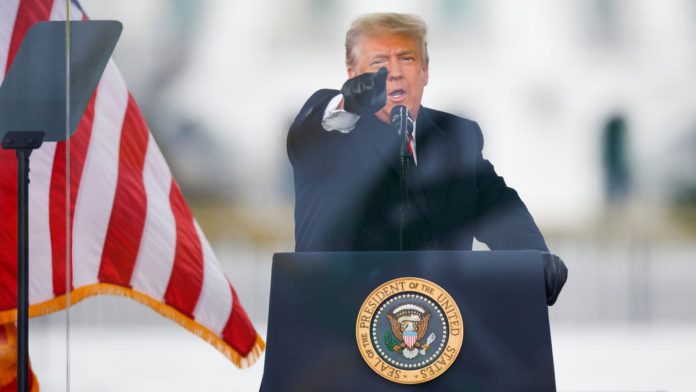Supreme Court to Decide if Trump Has Immunity in Federal Election Case
The Supreme Court is set to decide whether former President Donald Trump has immunity from prosecution in his upcoming federal trial on election interference. This case brings to mind the precedent set by Richard Nixon, who avoided criminal charges through a presidential pardon.
In 1982, the Supreme Court ruled in Nixon v. Fitzgerald that presidents cannot be held liable for official actions in civil suits. The court reasoned that such lawsuits would be too distracting for a president and could make them overly cautious in carrying out their duties. Now, the Supreme Court will hear oral arguments on whether this same logic should apply to Trump’s attempt to dismiss federal criminal charges related to the 2020 election.
Many experts believe that the justices are likely to reject Trump’s claim of absolute immunity. However, the timing of the court’s decision and whether they find that presidents have some immunity will determine if Trump can be tried before the November election.
The delay in Trump’s trial has raised concerns that the court may have effectively granted him immunity if there is no trial and he wins the election. Critics argue that this would undermine the criminal justice system’s purpose and give Trump an unfair advantage.
This case is unprecedented as Trump is the first president to face criminal charges. He is accused of trying to overturn the 2020 election results through spreading lies about election fraud and pressuring state officials. Trump hopes that the Nixon v. Fitzgerald decision will protect him from criminal charges as well.
The Supreme Court’s decision on Trump’s immunity is eagerly awaited, with experts speculating on possible outcomes. Some hope for a narrow ruling specific to Trump’s case, while others believe the court will reject his broad immunity argument but allow him to challenge the charges.
Overall, the process of going to trial before the election is expected to be challenging, with potential delays and legal battles ahead. The outcome of this case will have significant implications for presidential immunity and the rule of law in the United States.
